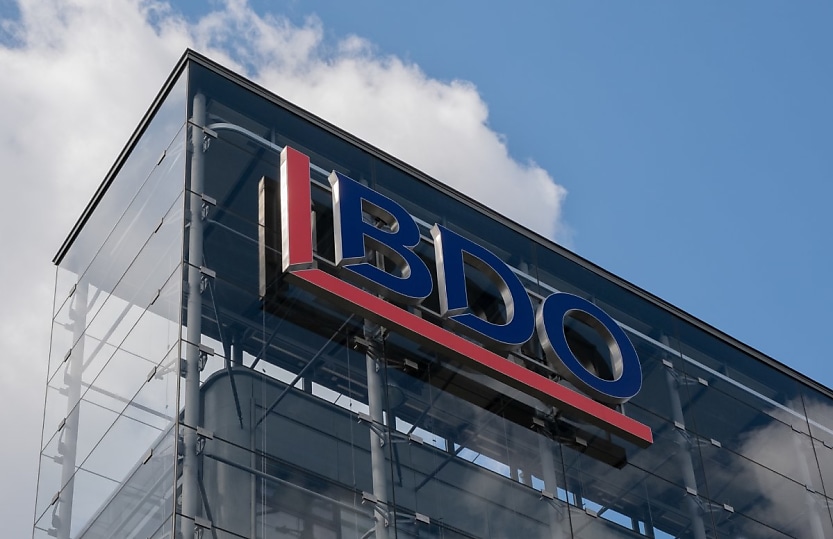Businesses told to welcome risk in ‘era of perpetual crisis’: BDO report

Organisations must go beyond traditional risk management in order to manage the raft of complex and intersecting risks in the current environment, a report warns.
The BDO Global Risk Report 2023 has identified the risk multiplier effect as one of the most significant challenges currently facing businesses globally.
The risk multiplier effect describes how different risks can intersect and amplify one another, creating new and more complex threats.
The report found that the risk multiplier effect is becoming increasingly important as the world becomes more interconnected and complex.
“This perma-crisis environment means businesses need to consider risks holistically, instead of in isolation, to effectively address them,” the BDO report stated.
Technology, ESG, regulatory and climate risks can intertwine
The report highlighted some of the examples of how the risk multiplier effect operates.
“For example, climate risks can trigger technological risks — and amplify further risks — for businesses in a range of ways. Extreme weather events, such as floods, drought and hurricanes, can damage infrastructure, which affects operations, exacerbates supply chain risks, and increases costs,” the report said.
“In addition, climate risks are amplifying cyber-risk; many companies have turned to technology to reduce emissions by using AI to optimise operations, but this has increased their online vulnerability. This, in turn, increases the risk of cyberattacks, leading to data breaches, reputational damage and financial loss.”These cascading climate and technology-related risks often play out against a backdrop of regulatory risk.
“As environmental regulations become more stringent worldwide, the cost of compliance can add further costs as businesses are required to reduce emissions, become more energy-efficient and invest in climate-resilient infrastructure,” the report said.
Increased requirements for environmental, social, and governance (ESG) reporting can expose environmental damage or social governance issues, which then creates amplified reputational risks.
“One of the best-known examples happened in 2015 when it was revealed that Volkswagen had inaccurately reported its diesel car emissions. This led to a 30 per cent drop in share price, a long process of reputational recovery and compensation payouts, estimated to be in the tens of billions of dollars, which are still being calculated,” the report explained.
The Covid-19 pandemic was an example of the knock-on effect of businesses suffering economic loss and workforce cuts from reduced demand for goods and services.
“For manufacturers, the cascading risk of the pandemic was compounded by supply chain issues, particularly if raw materials were sourced from other countries, along with falling customer demand,” BDO said in the report.
Where a new regulation or technology intersects with an existing business risk, it can amplify its impact and exacerbate the challenges for organisations.
“For example, disruptive technology can amplify fraud risks, as criminals use the technology that was designed to help businesses, to develop new ways to phish employees and access internal systems,” the report.
“Your business may not have been prepared for the impact of disruptive technology on business fraud, and your training and protections may prove insufficient to tackle this amplified fraud risk.”
Business interruptions and difficulties in obtaining capital or funding was outlined as the most significant risk pairing in the BDO Global Risk Landscape survey with 23 per cent of respondents identifying this as the risk combination posing the biggest threat.
A new approach to risk needed
Businesses typically focused on managing individual risks in isolation in the past but the risk multiplier effect means that businesses may now need to take a more holistic approach to risk management, considering how different risks can interact and create new threats.
Operating against a global backdrop of perma-crisis will require action and a mass-mindset change toward a risk multiplier-driven and risk-welcoming approach, breaking down internal silos and leveraging internal expertise to best protect the business, the report cautioned.
The report recommends that businesses implement a risk management framework to identify, assess and mitigate risks.
“It is vital for businesses to recognise that a risk that begins as small and manageable can snowball into an existential risk as a result of the risk multiplier effect,” it said.
“Mitigation strategies, such as detailed scenario planning involving a wide array of teams and internal expertise, and early warning systems that quickly detect risks spilling into other areas of the business, can help predict which risks could pose an existential threat and protect against their spread before it’s too late.”
In terms of fraud risks specifically, Glenn Pomerantz, Forensic Partner and Global Forensic Leader, BDO USA said it was important that the highest levels of a company, including the audit committee and the board, overseeing fraud prevention.
“Ultimately, it comes down to early detection, so those detection mechanisms bring it to the right person’s attention quickly,” said Mr Pomerantz.
Business may need to put in place analytics or AI to detect anomalies quickly and get them investigated immediately.
About the author

